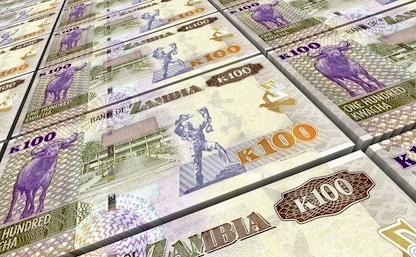…. As it attracts K5.1bn worth of nominal bids
By BUUMBA CHIMBULU
ZAMBIA has for the second month recorded surging interest in its government paper as it attracts K5.1 billion worth of nominal bids in its fixed income sale held last Friday.
[ihc-hide-content ihc_mb_type=”show” ihc_mb_who=”4,5,6″ ihc_mb_template=”2″ ]
Offshores have also continued to remain bullish on its long-term outlook.
The country attracted K5.1 billion worth of nominal bids in its fixed income sale held last Friday, for which the Bank of Zambia (BoZ) accepted K4.6 billion worth of nominal appetite.
According to the Kwacha Arbitrageur, Zambia’s bonds were a good carry trade given the current yields in the 20’s that most players seeking to house their liquidity.
“Friday’s bond auction revealed a strong appetite skew on the longer end of the yield curve with close to K3.6 billion of the bids in the 10 – 15-year tenors paying 26.75 percent and 27.75 percent respectively.
“The Kwacha term structure of interest rates remained unchanged as yields exhibit stickiness upwards due government financing shortfalls. For local players, the current bond yields provide decent cover and compensation for the inflation levels at 10.3 percent making real yields positive,” the magazine stated.
It indicated that in the middle of a debt restructure, Zambia continued to attract confidence in its economic recovery process that had attracted global money looking for a home in a safe jurisdiction.
“Despite delays in the restructure process marred by completion of signing of memoranda of understanding a key determinant of the private debt reorganisation process, investors are more optimistic than ever concerning the sovereign posture improvement of the copper producer,” the magazine indicated.
The magazine indicated that Moody’s rating agency recently upgraded Zambia’s local currency long term issuer rating to Caa3 from Ca due to the strides the sovereign has taken to earn it bilateral debt treatment.
However, the rating agency cited weak governance, cash flow position and exposures to environmental headwinds (impacting agribusiness and energy generation) continue to weigh.
Zambia continues to grapple with foreign exchange risk as dollar supply concerns persistent causing demand backlogs.
[/ihc-hide-content









